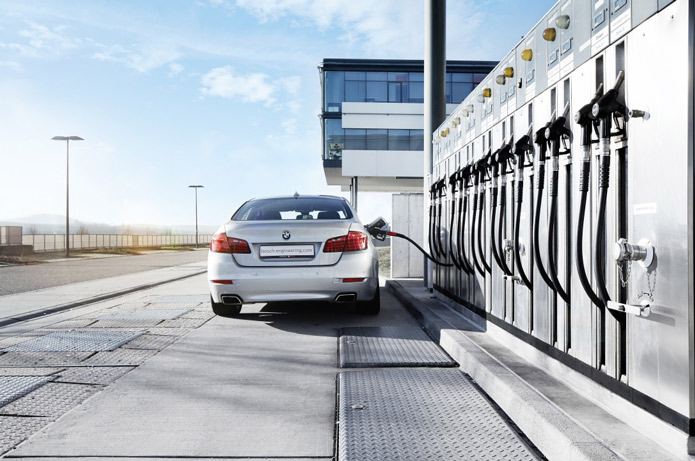E-Fuels
E-fuels are synthetic fuels that are produced exclusively using renewable energy. E-fuels allow CO2-neutral operation of internal combustion engines.
Production
E-fuels are produced exclusively using renewable energy. First of all, hydrogen (H₂) is produced from water. An organic material is now required for a liquid fuel. The required CO₂ can be obtained as a raw material from industrial processes or from the ambient air using filters. The synthetic fuel is then obtained from the CO₂ and H₂: petrol, diesel, gas or kerosene. During combustion, only as much CO₂ is produced as was taken out of the environment during production. E-fuels allow CO₂-neutral operation of conventional internal combustion engines.
A further argument in favour of e-fuels is that the technology does not require any new filling infrastructure - the existing filling station network can be used.
From a technical perspective, it is already possible to produce e-fuels today. However, most countries lack sufficient renewable sources of energy and the capacities to produce e-fuels for a mass market. In addition, they are still very expensive. As larger production capacities are built up and the costs of generating renewable energy fall, e-fuels will definitely become more economical.
Protection of the environment
E-fuels are produced exclusively using renewable energy source such as solar or wind energy. The CO₂ used in production of e-fuels is also ideally taken from the ambient air. This results in a cycle: The CO₂ resulting from combustion of e-fuels can be recycled and used for production of new e-fuels. This allows the internal combustion engine to be made CO₂-neutral. As a result e-fuels can contribute to reducing CO₂ emissions from the current vehicle fleet, i.e. those vehicles that are already on the roads and are not climate-neutral.


